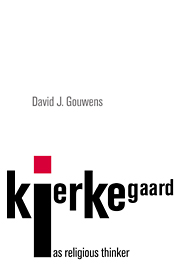Book contents
- Frontmatter
- Contents
- Acknowledgements
- List of abbreviations
- Introduction
- 1 Diseases of reflection
- 2 Anthropological reflection
- 3 Becoming religious: upbuilding before God
- 4 Becoming Christian I: responding to Christ in faith
- 5 Becoming Christian II: suffering and following Christ in hope
- 6 Becoming Christian III: love and imitating Christ in works
- 7 Witness in faith, hope, and love
- Conclusion
- Bibliography
- Index
2 - Anthropological reflection
Published online by Cambridge University Press: 14 October 2009
- Frontmatter
- Contents
- Acknowledgements
- List of abbreviations
- Introduction
- 1 Diseases of reflection
- 2 Anthropological reflection
- 3 Becoming religious: upbuilding before God
- 4 Becoming Christian I: responding to Christ in faith
- 5 Becoming Christian II: suffering and following Christ in hope
- 6 Becoming Christian III: love and imitating Christ in works
- 7 Witness in faith, hope, and love
- Conclusion
- Bibliography
- Index
Summary
Having focused in the first chapter on the diseases of reflection and his understanding of an alternative “style” of “subjective thinking,” our task now is to look more carefully at the shape of Kierkegaard's alternative reflection. So, too, we need to broaden our analysis from the particular diseases of reflection analyzed in chapter 1 to his diagnosis of wider spiritual ills. We will see how he approaches the methods and tasks of understanding human existence that are part of what he calls “anthropological contemplation” and how this is central to his religious thought. In particular, we will see how he interweaves the task of a general psychological analysis of the self with the dogmatic description of the self in terms of Christian concepts.
In the first part, we will look at how anthropological reflection relates analysis of the human – in particular, psychology – to religion and Christian belief. We will need to consider first how “psychological” investigations yield “objective” knowledge of the self; second, how psychology and religion (in particular Christian dogmatics) interact as separate yet related kinds of investigations; and third, the related question of whether Kierkegaard's anthropological and religious thought should be seen theologically as primarily “apologetic” or “dogmatic.”
In the second part, we will turn from these methodological considerations to a fuller description of Kierkegaard's interweaving of psychology and Christian concepts in his religious understanding of the self.
- Type
- Chapter
- Information
- Kierkegaard as Religious Thinker , pp. 55 - 92Publisher: Cambridge University PressPrint publication year: 1996



